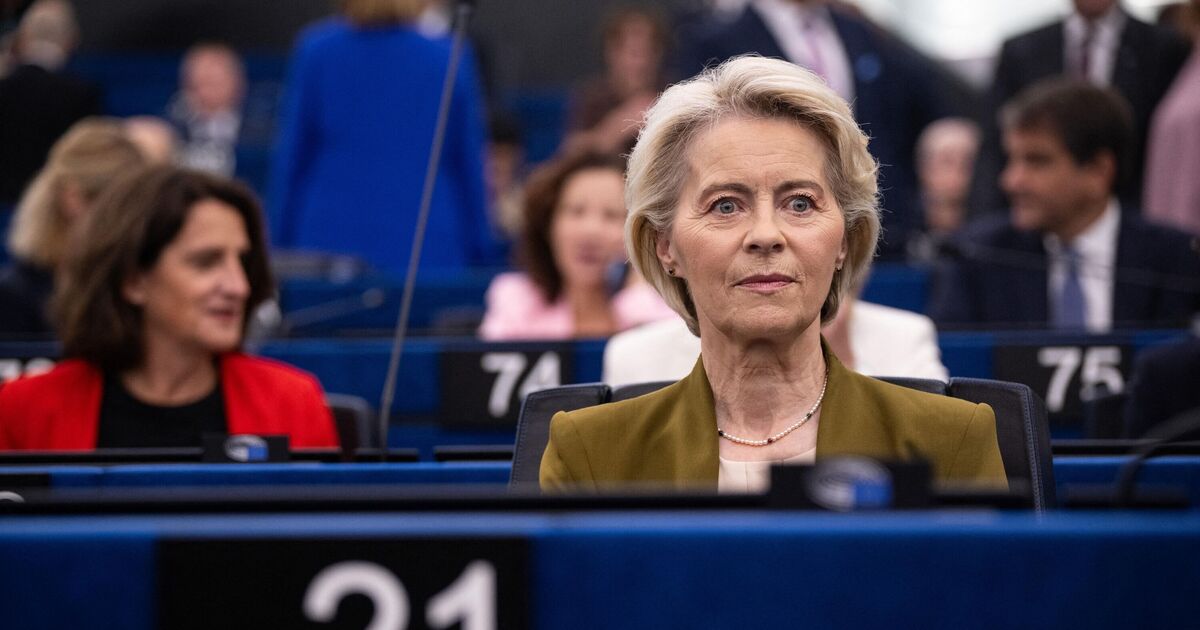Brexit has enabled the United Kingdom to avoid being sucked into the European Union’s looming “shadow debt nightmare” after Brussels confirmed that repayments on its flagship £690 million (€800 billion) borrowing programme must now be built into the EU’s budget, one financial expert has claimed. Bob Lyddon, a long-standing analyst of EU finances, said the burden of servicing the bloc’s debts will now fall directly on member states, while Britain, having left the EU, is shielded from the liabilities.
The founder of Lyddon Consulting Services said: “The structure of the scheme has pushed the EU’s shadow debts above the horizon and landed their costs squarely in the in-trays of finance ministers. If there was one good reason for Brexit, this is it. The UK is not on the hook for other people’s debts.”
The scheme in question, Next Generation EU, was created in 2020 to finance pandemic recovery. Brussels borrowed more than €700 billion on capital markets, with authority to raise as much as €800 billion. The funds were distributed to member states in a mix of grants and loans.
According to Mr Lyddon’s analysis for the IREF Europe think tank, at least €300 billion of that money will never return to the EU budget. The grants are permanently spent, while repayment of the loans is uncertain.
Repayments on the EU’s bonds are now due to be built into the bloc’s next budget cycle. The European Commission has proposed new sources of “own resources” to cover the gap, including a carbon border tax, a share of emissions trading revenues and other potential levies.
Mr Lyddon continued: “EU taxpayers will be tapped up one way or another. Either governments pay more from national budgets, or Brussels extracts it through new EU-level taxes.”
The joint-and-several nature of the debt means that all member states are liable for repayment, regardless of the amounts they received.
That leaves stronger economies such as Germany and the Netherlands, and heavily indebted France, facing higher exposure if weaker states fail to meet obligations.
The issue is expected to cause political strain in Paris in particular. President Emmanuel Macron’s government is already under pressure over rising deficits, and any EU-driven tax measures that divert revenue from French households and firms risk further controversy.
Next Generation EU was presented as a historic show of solidarity during the pandemic, but its long-term financing implications were not widely debated at the time.
Mr Lyddon said the scheme has now turned into a structural burden on the EU’s budget, reducing the fiscal room for manoeuvre in Brussels and national capitals alike.
He said: “Rather than governments paying more directly, the EU wants to collect new taxes itself. But in the end, it still comes from the pockets of European citizens.”
Britain’s departure from the EU in 2020 means it is insulated from these costs. During the 2016 referendum campaign, Leave campaigners repeatedly argued that EU membership risked entangling the UK in shared liabilities arising from bailouts and common borrowing. Remain campaigners dismissed those warnings as exaggerated.
The revelation that member states must now accommodate debt repayments from the Next Generation EU scheme will be seen by Brexit supporters as vindication of those concerns.
The timing is sensitive, as the EU prepares its next seven-year budget cycle amid sluggish growth, high public debt and rising demands for defence and energy spending. European Commission President Ursula von der Leyen is under pressure, with Hungarian Prime Minister Viktor Orban today announcing he had submitted a motion of no confidence in her leadership.
Any perception that Brussels is diverting funds to service past borrowing rather than investing in new priorities could deepen political tensions across the bloc.
For the UK, the development underlines one of the clearest fiscal consequences of Brexit: exclusion from the EU’s collective debt obligations.
